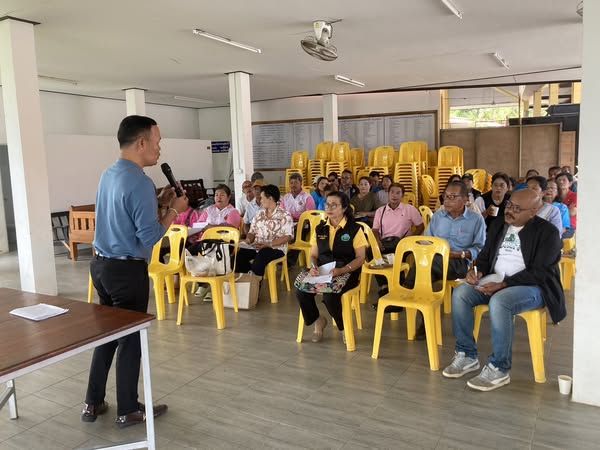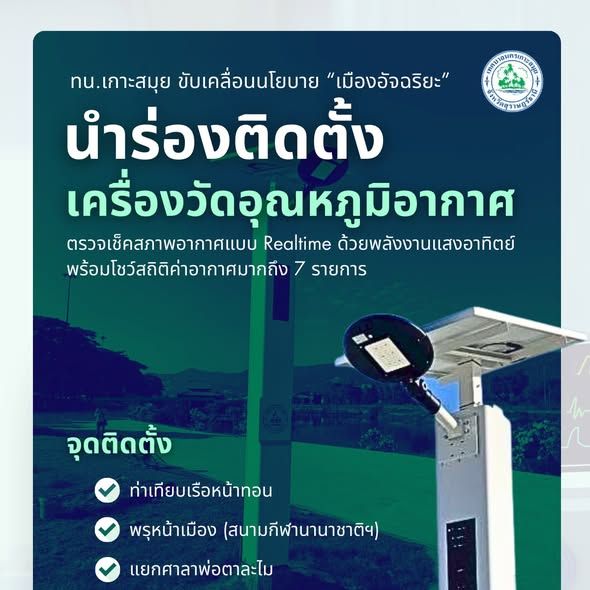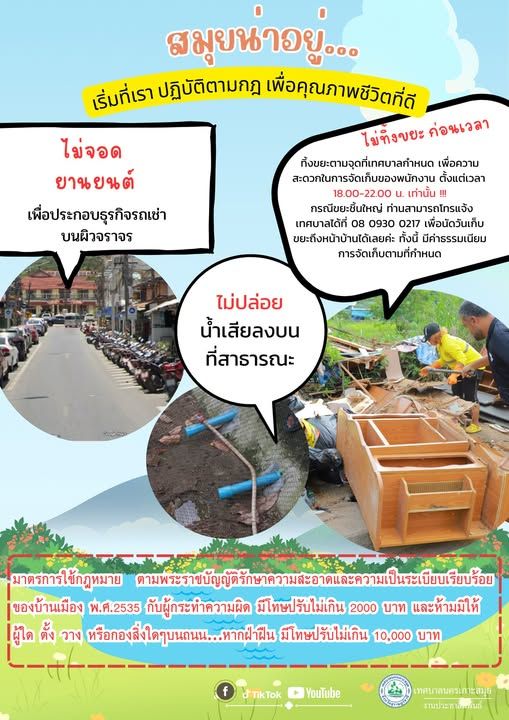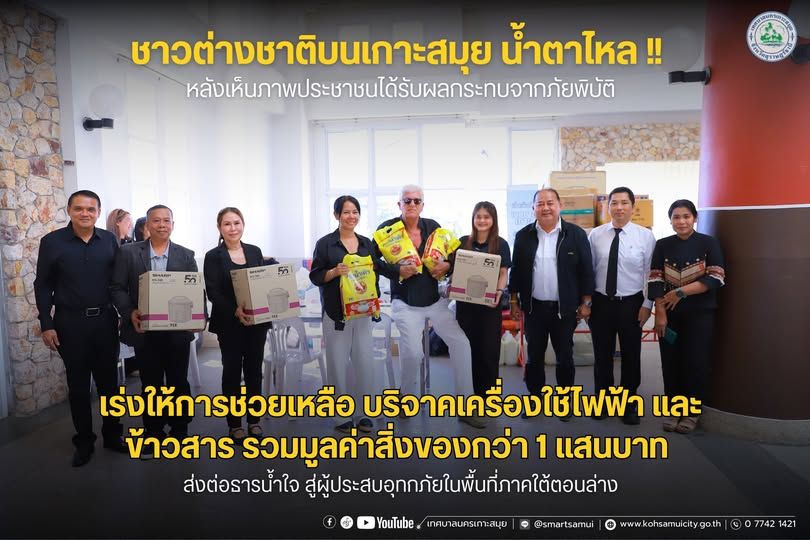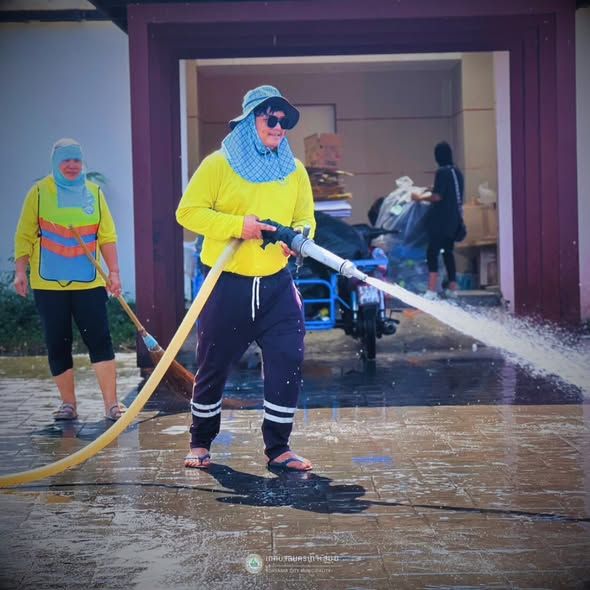Here’s a two-sentence summary with hashtags:
Municipal leaders and community representatives gathered in Koh Samui for a groundbreaking 3-day urban community development workshop, learning critical skills to survey quality of life and create actionable community plans. The innovative training, led by experts like Mr. Apichit Chandet, aims to empower local voices and drive sustainable urban development.
CommunityDevelopment #UrbanPlanning #KohSamui #SustainableCities #LocalEmpowerment #ThailandTravel #CommunityInnovation #SocialWelfare #UrbanSolutions #IslandWorkshop
From March 24 to 26, 2025, the Social Welfare Division organized a practical training workshop titled “Guidelines for Surveying Quality of Life Data and Planning for Samui Urban Communities at the Subdistrict Level.” This initiative formed part of the Project for the Development of Quality of Life in Slum Communities and Housing Management for the Fiscal Year 2025. The event brought together a diverse group of stakeholders, all committed to enhancing the living conditions and addressing quality of life issues for residents of Koh Samui City Municipality.
Workshop Objectives
The key objective of the workshop was to empower participants with the skills and knowledge needed to survey quality of life data and plan effectively for urban community development at the subdistrict level. The initiative aimed to increase community engagement in decision-making and encourage collaborative efforts in solving pressing issues related to housing, infrastructure, health, and social welfare in slum communities.
Participants and Target Groups
Attendees included municipal council members, heads of government departments, municipal staff, and representatives from the Social Welfare Division. The workshop also welcomed community chairpersons, committee members, and interested residents from the subdistricts of Maret, Na Mueang, Lipa Noi, Taling Ngam, Ang Thong, and Mae Nam. This broad participation ensured that voices from all levels of the community were included in discussions on quality of life improvement.
Workshop Program and Activities
The three-day program featured a series of lectures, group discussions, and practical exercises. Mr. Apichit Chandet, the keynote speaker, delivered a comprehensive lecture on best practices for surveying quality of life data and strategic planning for urban communities. Participants engaged in hands-on activities, learning how to design and conduct surveys, analyze data, and use findings to inform actionable plans.
Core Topics Covered
- Survey Methodologies: Exploration of tools and techniques for collecting accurate and relevant quality of life data from diverse community members.
- Participatory Planning: Approaches to involving residents in the planning process to ensure that solutions reflect community needs and priorities.
- Data Interpretation: Methods for analyzing survey results to identify trends, gaps, and opportunities for intervention.
- Action Plan Development: Steps for translating survey findings into practical, sustainable development plans specific to each subdistrict’s context.
Significance of Quality of Life Data Surveying
Surveying quality of life data is a critical foundation for effective urban planning and community development. Collecting accurate data allows local governments and stakeholders to:
- Identify key issues affecting residents, such as inadequate housing, limited access to services, and social inequalities.
- Prioritize interventions and allocate resources efficiently.
- Monitor progress over time and adjust strategies as needed to achieve sustainable outcomes.
- Promote transparency and accountability in local governance.
Community Involvement and Local Development
A major emphasis of the workshop was on fostering community involvement. By engaging chairpersons, committee members, and residents from multiple subdistricts, the training promoted a bottom-up approach to development. This collaborative model strengthens social cohesion and ensures that initiatives are tailored to the unique challenges and assets of each community.
Broader Impact on Housing and Urban Management
The workshop was part of a larger effort under the Quality of Life Development Project for Slum Communities and Housing Management. This project seeks to address the complex interplay between housing conditions, public health, economic opportunity, and social well-being in underserved urban areas. By equipping local leaders and community members with practical skills and knowledge, the project aims to advance sustainable urban management and improve living standards for all residents.
Future Directions and Capacity Building
Ongoing training, support, and capacity building are planned to ensure that the lessons and skills gained from the workshop are implemented effectively at the subdistrict level. The Social Welfare Division and partner agencies will continue to provide technical assistance, monitor progress, and support ongoing community-led development initiatives throughout Koh Samui City Municipality.
Frequently Asked Questions
“`markdown
Frequently Asked Questions (FAQ)
What was the main purpose of the Koh Samui urban community development workshop?
The primary goal of the Koh Samui workshop was to empower local leaders, municipal staff, and community representatives with practical skills to survey quality of life and plan effective urban development at the subdistrict level. By focusing on participatory methods and data-driven planning, the event encouraged collaborative problem-solving and more responsive solutions for housing, infrastructure, health, and social welfare—especially in slum communities.
Who participated in the workshop, and why was their involvement important?
The workshop gathered municipal council members, government department heads, municipal staff, and Social Welfare Division representatives alongside community chairpersons, committee members, and residents from various subdistricts. This diverse participation ensured that all community voices—from decision-makers to residents—were included, fostering a bottom-up approach that strengthens social cohesion and tailors development initiatives to local needs.
How does surveying quality of life data benefit urban communities and local governance?
Collecting accurate quality of life data is essential for identifying key community issues, prioritizing interventions, and allocating resources efficiently. These surveys inform actionable plans, promote transparency and accountability, and enable ongoing monitoring and adjustment of strategies—leading to more sustainable, targeted, and community-driven urban development.
“`
